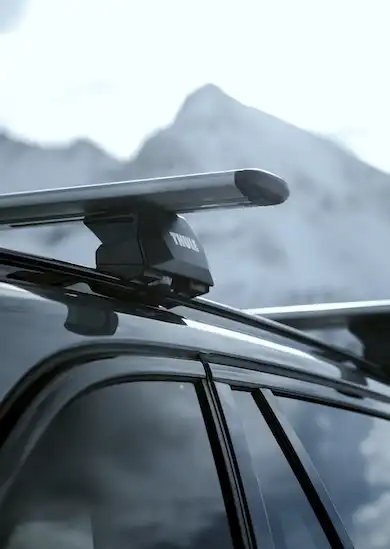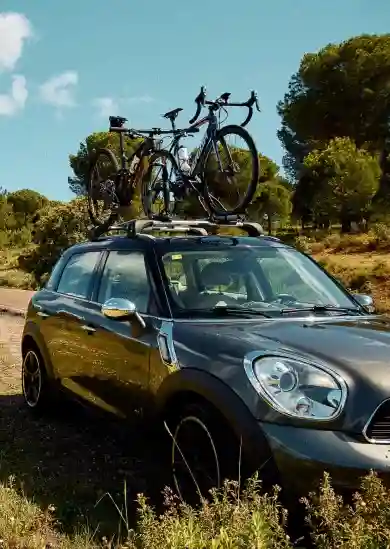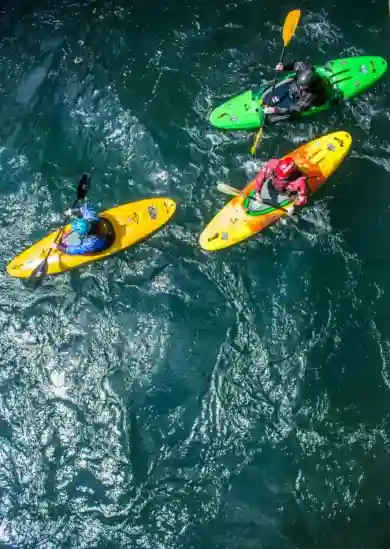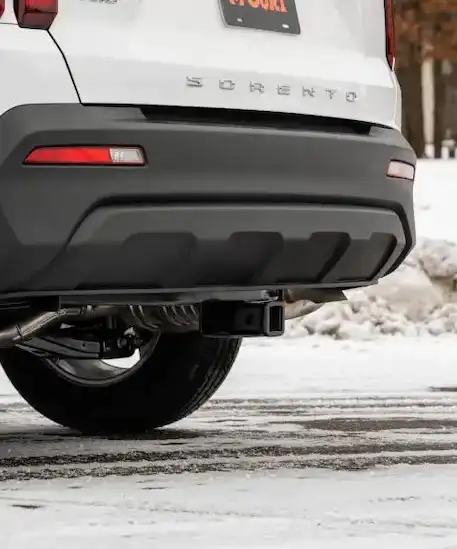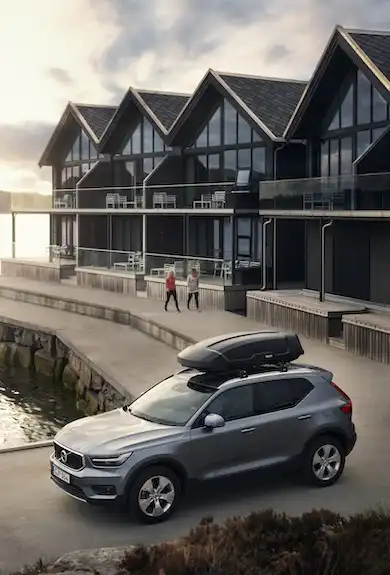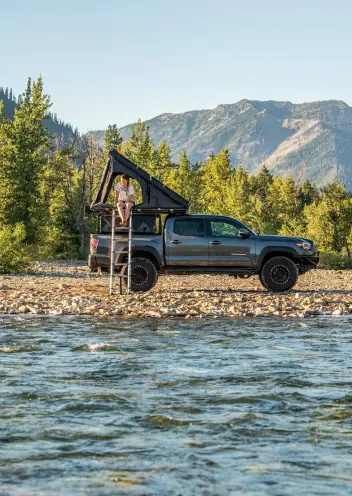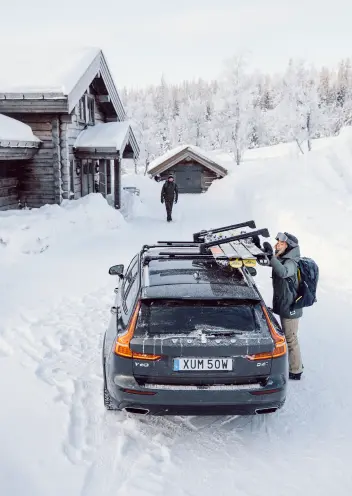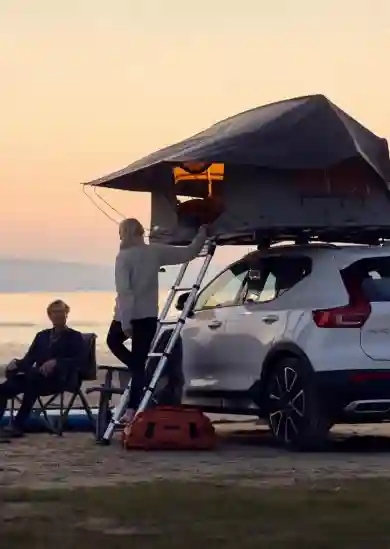October 19, 2023
Rack Attack Team
The Ultimate Guide to Overlanding
Discover the world of overlanding and learn how rooftop tents can elevate your adventures. Compare top picks like Roofnest Falcon Pro, Thule Approach, and iKamper Skycamp to find the perfect fit for your vehicle and journey.
Unveiling the Potential of Rooftop Tents
If you've ever felt the call of the open road and the allure of untamed landscapes, then you've likely flirted with the concept of overlanding. Whether you're a seasoned overlander or just dipping your toes into this exciting hobby, rooftop tents could significantly elevate your experience.
What is Overlanding?
Overlanding is vehicle-based exploration with a rooftop tent on your car and typically means travelling long distances to the perfect destination. It's not merely a camping trip, it's about the whole adventure and experiences along the way. Overlanding is a mix of off-road travel and camping in remote areas.
What is an Overlander?
An overlander is someone committed to the spirit of adventure, embracing a self-reliant, vehicle-based lifestyle. Overlanders are explorers at heart, seeking out destinations where the journey is the main attraction.
The Perfect Overlanding Vehicle
Before diving into rooftop tents, let's give a quick shout-out to some of the key vehicles that overlanders swear by. Jeeps, Toyota Tacomas, and Toyota 4Runners lead the pack in durability and off-road capability. However, mid-size SUVs and trucks offer the potential to outfit an overland adventure. The Honda CRV, Toyota Rav4, Subaru Crosstrek or Forester are a few popular mid-size vehicles with customization options. Your vehicle sets the stage for your overlanding experience, so choose wisely!
Featured Rooftop Tents for Overlanders
First let's touch on the difference between hardshell and softshell rooftop tents. Many people choose hardshell in the PNW due to keeping the tent dry when not in use. Let's dive into a few positives and negatives of each.
HARDSHELL
- Can be lighter on small models than softshell, allowing use on a wider variety of vehicles
- Generally quicker set up and tear down
- Better for keeping dry when not in use
- Some models allow for transport of items on top of the tent
SOFTSHELL
- Often cheaper than hard-shell options
- Unique tent profiles (Examples include: Thule Foothill, Dometic TRT140)
- More head space
1. Roofnest Falcon Pro
Why It's Worth It: Designed for the seasoned overlander, the Falcon Pro offers advanced features, durability, and a streamlined design. It offers rear entry where applicable and the style is the easiest to open and close.
- Aerodynamic, low-profile shell.
- Interior: Built-in gear rack for extra storage.
- Exterior: add on the Falcon Crossbar kit to provide a set of usable bars on the lid of the tent.
- Telescoping ladder for easy access.
Perfect For: Overlanders looking for a tent that offers both utility and advanced features.
2. Thule Approach
Why It's Worth It: This versatile tent is as comfortable as it is durable, ideal for a range of climates and conditions.
- Premium canopy fabric.
- Space for up to three people.
- Ventilated mesh panels.
- Corner windows rather than rooftop windows for better 360-degree views
Perfect For: Those seeking a tent that is both versatile and comfortable.
3. iKamper Skycamp
Why It's Worth It: With its quick setup and spacious interior, the Skycamp 3.0 is perfect for families and groups. It's universal and user-friendly hardware with vendor supported locking options via the locking mount hardware for the 3.0 series.
- Hardshell rooftop design for quick setup.
- King-size mattress.
- Accommodates up to four people.
Perfect For: Overlanders traveling with family or a larger group.
Are Rooftop Tents Worth It?
Now that you understand the spirit of overlanding, you might be considering a rooftop tent as your next investment. But are rooftop tents worth it? Absolutely. A good-quality rooftop tent, whether it's a hardshell rooftop tent or a soft shell, offers several advantages:
- Quick Setup: Forget fumbling around with tent poles as the sun sets. Most rooftop tents can be set up in under five minutes.
- Elevated Safety: Sleeping off the ground keeps you away from crawling insects and larger wildlife.
- Unbeatable Views: Imagine waking up to a cliff-side ocean view or a mountain range that you didn't have to hike up.
- Space-saving: By relocating your lodging to the top of your vehicle, you're freeing up valuable space for other essential gear.
Overlanding Communities and Resources
One of the many fantastic aspects of overlanding is the community. There are numerous online forums, social media groups, and even physical meetups where like-minded overlanders share tips, routes, and experiences. Some even arrange group overland trips, offering a more secure way to explore unfamiliar territories.
Are Rooftop Tents Bad for Your Car?
Generally speaking, most modern vehicles can handle the added weight of a rooftop tent without any issues, especially when driving on flat terrains. It's crucial, though, to consult your vehicle's manual to confirm its dynamic weight capacity and make sure you're not going overboard. Most rooftop tents weigh between 100-200 pounds, and then you'll have to add the weight of your gear and the people sleeping in it. If your vehicle can handle this, you're good to go.
Are Rooftop Tents Comfortable?
While comfort is subjective, many rooftop tents offer high-density foam mattresses and breathable fabrics, making them more comfortable than a typical ground tent. They also come with additional features like weatherproofing and hard shells that withstand strong winds, making them a robust option for lodging while on overland trips.
Ideal Seasons for Travel
Choosing the right season for your overland adventure is also crucial. While summer may seem ideal, some regions become excessively hot or crowded. Spring and autumn often provide a balance of good weather and fewer crowds. However, it's crucial to check the weather forecasts, road conditions, and any fire or other natural disaster warnings that could affect your trip. Some tents do offer insulation for interior warmth and weather hoods for exterior protection to allow for all-season camping.
From your choice of vehicle to your rooftop lodging, every aspect of overlanding is ripe for customization. Whether you're a seasoned pro or a curious newcomer, consider enriching your adventure with a top-notch rooftop tent like the Roofnest Falcon Pro, Thule Approach, or iKamper Skycamp 3.0. Each has its unique features designed to suit a range of overlanding styles and needs.
Other things to consider:
- Be sure to check-ahead and book your camp site if necessary.
- Consider additional lighting on your vehicle and power.
- Bring a step with you for ease of set-up and tear down.
